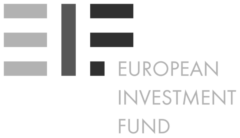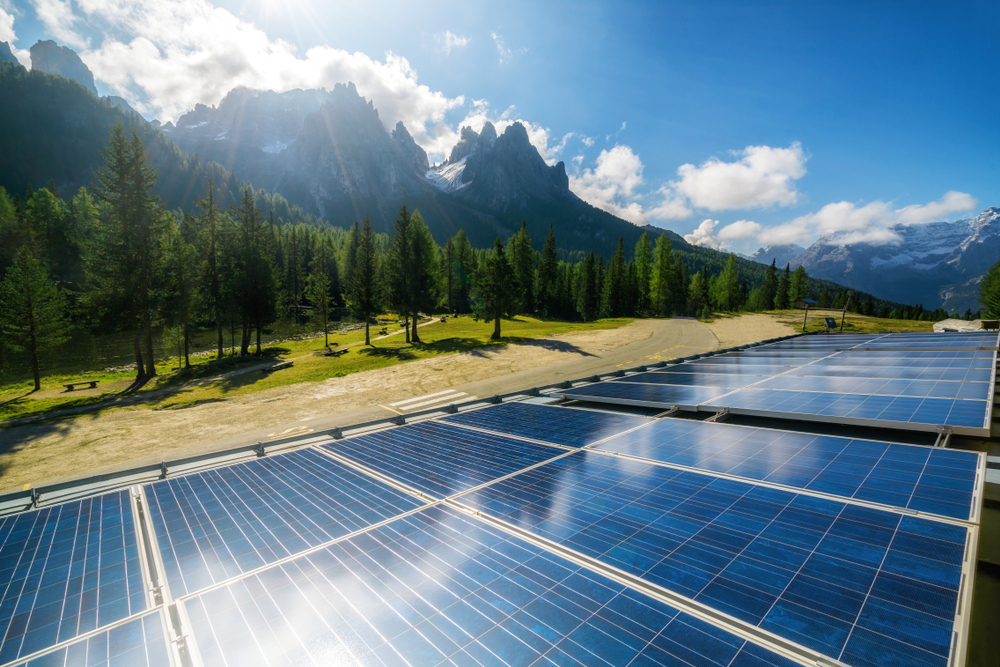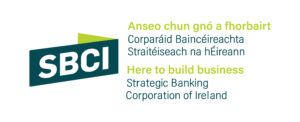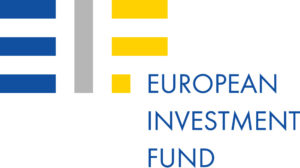Key Features
The Scheme is to support eligible SMEs to invest in energy efficient assets that will improve their energy efficiency and support the national objective of reducing carbon emissions
Loan amounts from €10,000 to €150,000. Flexible terms from 1-10 years
Making your business more energy-efficient is an effective way of reducing operating costs while being kinder to the planet
No additional security will be required outside normal criteria for Capitalflow Asset Finance products. No security will be required outside of normal criteria for Capitalflow Unsecured Retrofit Loan product
Funding of up to 100% is available up to a maximum of €150,000 subject to scheme and Capitalflow criteria
Capitalflow will pay the participation fee directly to SBCI for inclusion in this scheme. In addition, Capitalflow will provide a 1% discount off standard rates.
Who Can Apply
The Energy Efficient Loan Scheme (EELS) is suitable for:
- has fewer than 250 employees
- has a turnover of €50 million or less (or €43 million or less on their balance sheet)
- is independent and autonomous i.e. not part of a wider group of enterprises
- has less than 25% of their capital held by public bodies
- is established and operating in the Republic of Ireland
- A person who is engaged in primary production which is the production, rearing or growing of primary products including harvesting, milking and farmed animal production prior to slaughter.
- It also includes hunting and fishing and the harvesting of wild products.
How To Apply
Follow this simple 2 step application process:
1. Are you eligible?
Step 1 – You submit an Eligibility Application Form to the SBCI. If eligible, you will receive an eligibility code.
2. Start Application
Upon receipt of your eligibility code, you can now apply for funding, start by getting your quote with us here
Email hello@wordpress-980875-3532634.cloudwaysapps.com for further information
Frequently Asked Questions
You should complete and submit the SME Businesses including Fishery form. We will contact you directly if any additional information or documentation is required.
A primary producer is a person engaged in the production, rearing or growing of primary products including harvesting, milking and farmed animal production. It also includes fishing and the harvesting of wild products.
It means that the scheme applicant operates their business mainly in the Republic of Ireland.
It stands for the “Statistical Classification of Economic Activities in the European Community” and is the standard system used in the European Union for classifying business activity. NACE codes are divided into sectors, such as retail, manufacturing, services etc.
A searchable list of NACE Codes eligible for EELS is available here.
When you receive State aid, you will receive a letter from the State body that provided it. Examples of State aid granting bodies include the Department of Agriculture, Enterprise Ireland, Bord Bia or the Local Enterprise Office.
For SMEs in sectors other than fishery and aquaculture, the maximum amount of De minimis aid any single recipient can receive cannot exceed €200,000 over a three-year fiscal period.
For SMEs in the fishery and aquaculture sector, de minimis aid is State aid given to an enterprise cannot exceed €30,000 over a three-year fiscal period.
For SMEs in the primary agriculture sector, article 14 of the EU Commission Agriculture Block Exemption Regulation (ABER) states that aid for investments in tangible assets on agricultural holdings linked to primary agricultural production cannot exceed €500,000 per undertaking per investment project.
The total amount of de minimis aid given to a single recipient performing road freight transport for hire or reward cannot exceed €100,000 over a three-year fiscal period.
For loans under EELS, the amount of de minimis aid that is provided to a borrower is determined by the size and duration of the loan under the de minimis rules.
Please note, the de minimis aid is not equal to the total amount of the loan.
State aid can occur whenever State resources are used to aid an entity engaged in economic activity that potentially could distort competition and trade.
The European Commission allows small amounts of State aid to be given to an entity as long as the aid complies with the De Minimis Regulation or the EU Commission Agriculture Block Exemption Regulation (ABER) and remains below a certain threshold. Examples of sources of State aid may include funding under schemes from the Department of Agriculture, Enterprise Ireland, Bord Bia or a Local Enterprise Office.
The Sustainable Energy Authority of Ireland (SEAI) Triple E Register for Products is a list of energy efficiency products that all meet a minimum set of stringent energy efficiency criteria and typically will reach a best-in-class efficiency standard. The register includes a broad range of assets across a wide spectrum of areas, including heating and electricity provision, lighting, and refrigeration and cooling. Under EELS, loans can be used to fund the purchase of energy efficiency assets such as heat pumps, solar panels, lighting controls, chillers and fluid coolers, commercial water boilers etc.
No. This scheme does not allow for the refinancing of existing loans / debt products.
No. Financing the purchase of electric vehicles (EVs) is not allowed under this scheme. However, the purchase of EV infrastructure such as charging points is eligible for funding.
Interest rates charged on this scheme will vary by on-lender but will include a discount from their normal lending rates.
Yes. You can use the same SBCI eligibility letter/code to apply for a loan to different on-lenders provided that you don’t exceed the maximum loan amount available under the Scheme (€150,000) and the eligibility code hasn’t expired.
This depends on the loan amount involved and if the on-lender has all the information needed to process an application. The on-lenders’ own websites provide details on their loan application times. Further details on EELS on-lenders are available at sbci.gov.ie
Loans can be used to fund the purchase of energy efficiency assets such as heat pumps, solar panels, lighting controls, chillers and fluid coolers, commercial water boilers, etc. Assets listed on the SEAI Triple E Register for Products are deemed eligible assets for the purpose of this scheme.
This is a person who is authorised to sign declarations on behalf of the business, e.g. the business owner or the CEO.
Yes. The SBCI eligibility letter/code can be used multiple times, provided that you don’t exceed the maximum loan amount available under the Scheme (€150,000) and the eligibility letter/code hasn’t expired.
Loans may be secured by the asset being funded only. Personal guarantees are not permitted under this scheme.
There is a two-step process to apply for a loan:
STEP 1 – The first step is to check your eligibility to apply for funding under EELS by completing the Eligibility Application Form available on the SBCI website. If your application is successful, you will receive an eligibility letter/code directly from the SBCI. Please note, the SBCI eligibility letter/code is not a guarantee of loan approval.
STEP 2 – Once you receive your confirmation eligibility code, you must then engage with the scheme’s participating on-lenders to begin their standard loan application process. It is only at this stage that a decision will be made on credit approval.
Yes. You can get more than one loan, provided that the total of those loans does not exceed the maximum loan amount available under EELS. The maximum amount of loan(s) you can get under this scheme is €150,000.
The approval of a loan under the scheme is subject to the on-lenders’ credit policy. The maximum loan amount might not be considered appropriate in every case by the on-lender. The full amount of the loan may have not been available due to the de minimis threshold.
If you are not satisfied with the reason given, you are initially encouraged to use the on-lenders’ appeals process.
In the case that the on-lender is a bank, if your appeal is unsuccessful you may be eligible for the services of the Credit Review Office.
Loans can be for terms of up to ten years in duration.
Loans under EELS are available up to 31 December 2023, or until the scheme has been fully subscribed.
Yes. The purchase of second-hand or new equipment aimed at upgrading the energy efficiency of the business is a permissible purpose under EELS, as long as the asset is listed on the SEAI Triple E Register for Products. Please note, the purchase of electric vehicles (EVs) is not eligible for funding under this scheme.
The SBCI eligibility letter/code is valid for six months from the date of issue, but it is always subject to the scheme remaining open and having funding available.
Energy Efficiency Loan Scheme
Lower Cost Green Funding for Irish Business
with support from the Strategic Banking Corporation of Ireland (SBCI) and the European Investment Fund (EIF)




